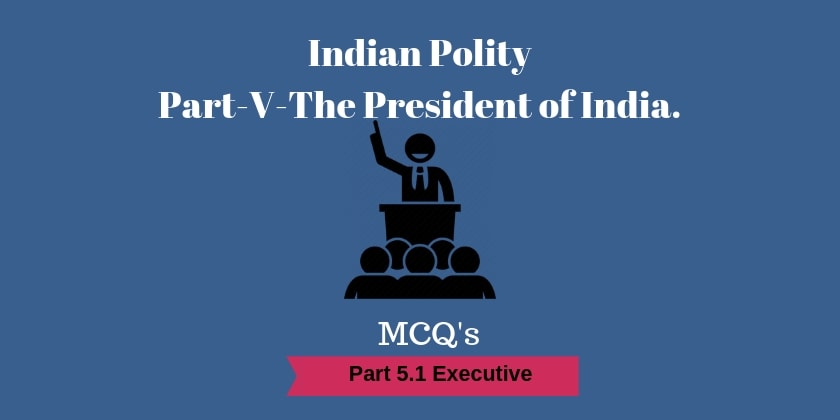41. A money Bill in the Parliament can be introduced only with the recommendation of the
A.President of India
B.Union cabinet
C.Speaker of the Lok Sabha
D.Union Finance Minister
[toggle] Answer – A [/toggle]
42. Which one of the following does not constitute the electoral college for electing the President of India
A.elected member of Rajya Sabha
B.Elected members of Lok Sabha
C.Elected members of the Legislative Assembly of each state
D.Elected members of the Legislative Concil
[toggle] Answer – D[/toggle]
42. When can a president use his discretion in appointing the Prime Minister?
A.In all circumstances
B.in no circumstances
C.when no political party enjoys a clear majority in the Lok Sabha
D.None of these
[toggle] Answer – C [/toggle]
43. In the election of the president, each Member of the electoral college has?
A.one vote
B.as many votes as there are candidates
C.one vote with value attached to it
D.one vote with value attached to it and he can give as many preference as there are candidates
[toggle] Answer – D[/toggle]
44. Which among the following Presidents died during his term at the office?
A. Dr Zakir Hussain
B. Rajendra Prasad
C. V.V. Giri
D. Dr S Radhakrishnan
[toggle] Answer – A [/toggle]
45. The president of India is
A.Commander-in-chief of Defence Forces
B.Head of the Govt.
C.Supreme commander of Armed Forces
D.Supreme commander of Defence Force of the Union & Executive head of the Union
[toggle] Answer – D[/toggle]
46. Which of the following does the President not appoint ?
A.Finance Commission
B.Planning Commission
C.UPSC
D.None of these
[toggle] Answer – B[/toggle]
47. Which of the following Article is deal with the term of the office of the President?
A. Article 53
B. Article 55
C. Article 52
D. Article 56
[toggle] Answer – D[/toggle]
48. Who address the first session of parliament each year & after General election ?
A.President
B.Speaker of Lok sabha
C.Prime Minister
D.Vice President
[toggle] Answer – A [/toggle]
49. Which among the following Veto powers is NOT granted to the President?
A. Absolute Veto
B. Pocket Veto
C. Qualified Veto
D. Suspensive Veto
[toggle] Answer – C
A. Absolute Veto: This Veto grants the President the power to reject a bill passed by the Parliament.
B. Suspensive Veto: This Veto grants the President the power to return the Bill for reconsideration, but if that bill returns, the President must give his assent.
C. Pocket Veto: This grants the President the power to withhold his decision, and thus the Bill, for an indefinite period of time. This is possible because the Constitution does not grant any time-limit for him to take the decision. [/toggle]
50. Which of the following article vested the executive power of the Union in the President?
A. Article 53
B. Article 54
C. Article 55
D. Article 56
[toggle] Answer – A [/toggle]

